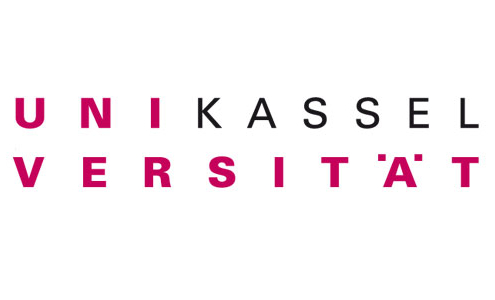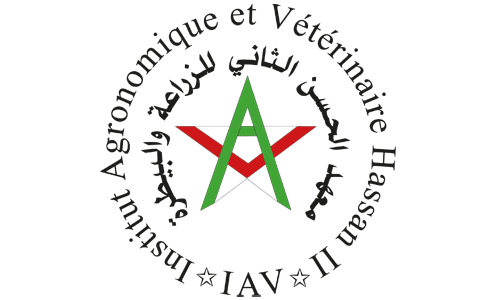

ConServeTerra is a PRIMA (prima-med.org/) funded Research and Innovation project tackling the constraints to greater Conservation Agriculture (CA) adoption in the Mediterranean area. ConServeTerra will directly target rarely addressed adoption constraints of CA systems and develop applicable and adoptable systems. One example of such adoption constraint is the human dimension of soil degradation, which is rooted in the socio-economic, political, cultural and mental environment. ConServeTerra is designed with the premise that main constraints hampering wider adoption of CA across the Mediterranean region are associated with mental and cultural attitudes, as well as social determinants towards soil and its management. An additional constraint is the insufficient promotion of context specific, hence a pragmatic approach to CA. Further complication arises from the direct “technology transfer” approach taken by the CA projects asking smallholder farmers to imitate the large-scale CA management tools. This “technology transfer” approach disregards the local realities such as communal stubble grazing and occasional necessity of tillage in the absence of expensive herbicides.
As such, ConServeTerra will adopt a demand-driven, scale appropriate, participatory approach to investigate these systems, moving them from TRL3 (proven feasibility) to TRL6 using successful cases in selected areas.
ConServeTerra project consists of seven interrelated work packages (WP) and their respective tasks and deliverables. ConServeTerra will rely on both biophysical and socio-economic research and networking. As such the project is divided into two complementary parts to achieve wider acceptance and adoption of CA. First part (WP2, 3 and 7) aims to enhance farmers’ knowledge and perception of value of soil and dangers of soil degradation. Second part (WP4, 5 and 6) analyses the context specific application of each of CA principles and aims to assure farmers that CA is a viable and sustainable alternative to current practices. Pilot farming communities will be selected and most of the field trials and field validation activities will be directly done on farmer fields. The on-station experiments will be designed to investigate the detailed, yet relevant, scientific questions. Farmer groups and associations will take an active role in the design and implementation of field activities, as well as in the dissemination of research results and policy influencing.
The overall objective of ConServeTerra is to facilitate wider acceptance and adoption of CA principles in the Mediterranean region by tackling the mental, cultural and contextual realities surrounding farmers’ soil management decisions. More specifically ConServeTerra aims to:
WP 1 – Project management
WP1 includes the management of all contractual, financial, legal, and ethical issues towards the PRIMA within the consortium and the establishment of a reporting system. It will lead communication, networking and outreach activities. This WP includes coordinating the collaborative scientific publications. Preparation and transmission of other deliverables will be coordinated by this WP as well. WP1 deals with project management, focusing on a) research activity management, b) financial and legal management, c) communication among & between partners, d) data management and e) organization of meetings.
WP 2 – Mental models and social determinants of soil management
WP2 will explore the socio-cultural values and main determinants and constraints that prevent farmers’ adoption of CA. It will develop an integrated understanding of farmers socio-cultural values associated with the land, and the factors driving their land management practices. First, we will explore the understanding of farmers about the soil as a key resource in the provision of ecosystem services across farmers in the selected case studies. Then, we will evaluate the factors and motivations behind the different management strategies of the land carried out by farmers, and the socio-cultural values associated. Finally, we will identify the main constraints hampering the adoption of CA practices. WP2 will reveal in-depth understanding of constrains and motivations behind the reluctance towards CA practices and will provide insight into the potential strategies based on local farmers knowledge about the adoption of CA.
WP 3 – Farmer field schools and soil literacy
WP3 is designed on the premise that without the basic understanding of soil as a living entity and a vital resource, farmers cannot be expected to practice soil conservation. WP3 will use rainfall simulators and basic, applied soil education for farmers. Rainfall simulators are effective tools that comparatively illustrate the soil erosion mechanisms under different soil management options. Benefits of stubble retention and soil cover is most effectively conveyed to farmers. FFS activities will improve farmers’ appreciation of soils and introduce them to concept of soil conservation with illustrated activities. FFS will be set up in selected farmers’ fields and will be conducted as soil fairs. They will be managed by national NGOs and farmers’ associations. The effectiveness of this approach will be tested whether the FFS can substantially increase implementation of CA principles and enhance farm performance. As such, WP3 is closely linked to WP2. In addition, a simple modelling exercise (ADOPT) will be used to determine the adoption potential of the introduced interventions.
WP 4 – Strategic tillage and weed management
WP4 will investigate the strategic and reduced tillage as a scale-appropriate, pragmatic tool to manage weeds and favor N mineralization. WP4 will reveal comparative performance of strategic tillage and no-till on crop productivity, soil fertility and water capture and holding capacity. It will also establish the best timing and intensity of strategic tillage options for weed control, N mineralization and crop productivity.
WP 5 – Pulses and forage legumes under CA
WP5 will investigate best management options of pulses and forages under reduced and no-till tillage conditions for improved weed control. The experiments and farmer-supported trials on farmers’ lands will be established in Tunisia, Morocco and Spain across a precipitation gradient ranging from 250 mm to 700 mm of rain. Selected annual legumes (vetches, balansa clover, field pea, grass pea, and faba bean) and their mixtures (including mixtures with cereals) will be investigated under CA principles with low-input approach. Additionally, various novel cropping strategies such as replacing weedy follows with annual forage legumes and summer grazing of annual legumes will be investigated in Morocco, Tunisia and Spain.
WP 6 – Crop-livestock integrated CA
There is an urgent need to establish optimum stubble management options under CA for Mediterranean region. WP6 will optimize the stubble management strategies under CA for increased productivity, and improved soil quality and water use efficiency. Existing IFAD funded CLCA project platform will be utilized, hence improving the efficiency of the activities. Interventions will be designed and tested on farmer’s fields with the full involvement of farmers considering the local realities. Communal grazing regulation and management options will be explored through focus groups. In Morocco and Tunisia, this WP will also investigate feasibility of managing vegetation by grazing under olive orchards, hence reducing tillage operations.
WP 7 – Capacity development, networking and dissemination
Networks formed around the co-design of innovations related to the selected cropping strategies will be supported by the project in order to achieve better articulation between research supply and user-driven demand for problem solving. Furthermore, policy influencing will be used to engage decision-makers and foster a dialogue at various levels. It will establish awareness and reputation, and disseminate the knowledge generated (throughout the life of the project) to end-users, intermediaries, policy-players and advisers in a way that is tailored to meet the needs and expectations of different stakeholder groups, including translation into local languages. Press releases, media briefings and tailored articles will be provided for specialists & appropriate international media outlets, with social media channels established and managed to continue to cascade and drive engagement with interested parties. WP7 will also support the production of training materials from WP3.


The proposed coordination structure for ConServeTerra is based on management experiences gained from other large research projects and networks with similar complexity, and clear requirements. The coordination and management structure for ConServeTerra are composed of the following core elements:
The project ConServeTerra – “Overcoming the physical and mental barriers for upscaling Conservation Agriculture in the Mediterranean” is supported by PRIMA under Grant No 1913, a programme supported by the European Union.
The PRIMA programme is an Art.185 initiative supported and funded under Horizon 2020, the European Union’s Framework Programme for Research and Innovation.